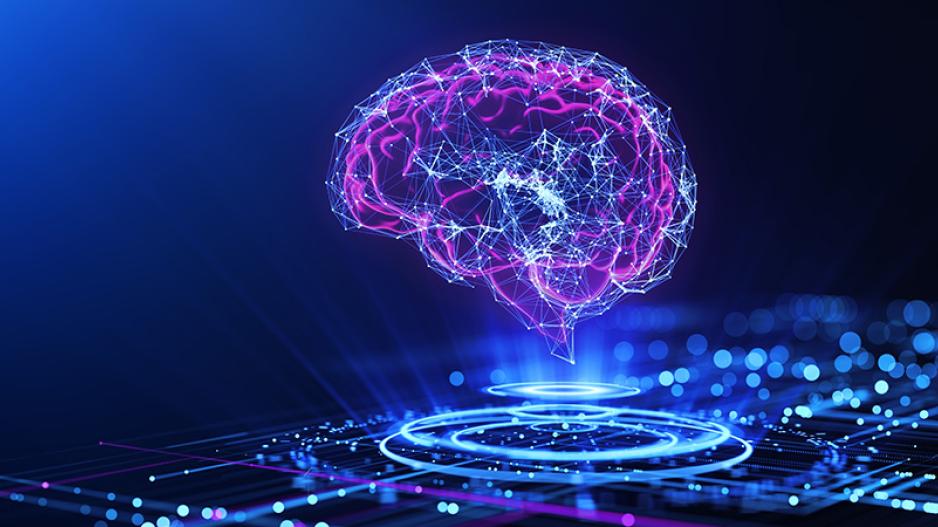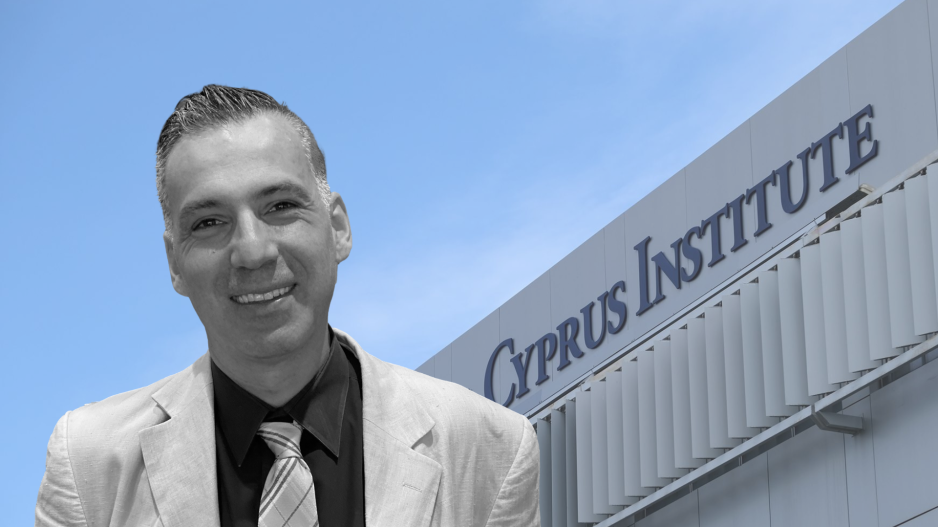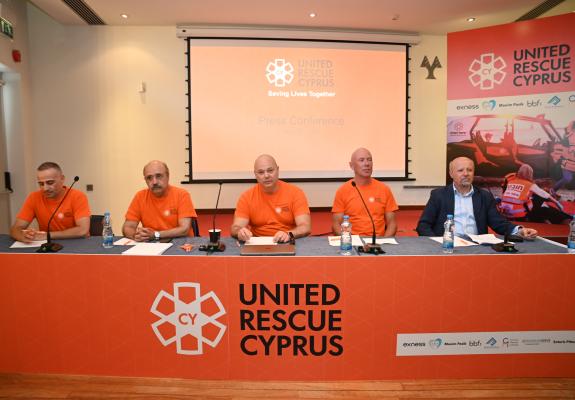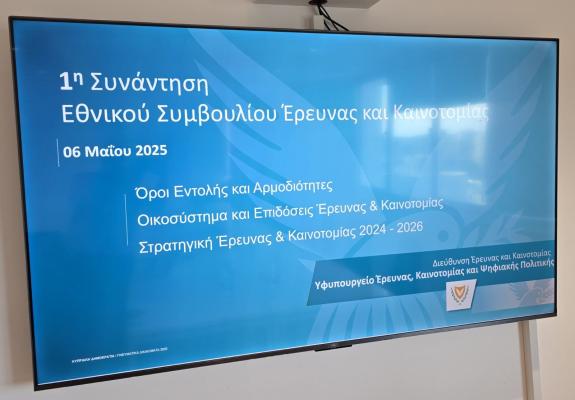Constantine Dovrolis on the AI Race Cyprus Can’t Afford to Miss
Director of CaSToRC speaks to FastForward about the integration of high-performance computing with machine learning and Cyprus’s strategic path toward national AI innovation.
As Director of the Computation-based Science and Technology Research Centre (CaSToRC) at The Cyprus Institute, Professor Constantine Dovrolis operates at the crossroads of AI, high-performance computing, and interdisciplinary science. CaSToRC is Cyprus’s top center in computational research, advancing AI, quantum computing, big data analytics, and modeling across fields like climate, biology, and materials science. With a strong academic background, Dovrolis brings a global outlook to the island’s research efforts. Now also a member of the newly established National AI Taskforce, he envisions Cyprus becoming a serious player in the AI space.
In his interview with FastForward, he reflects on transformative moments in his career, the promise of neuro-inspired AI, the Center’s expanding role in local industry and policy, and the urgent need for national computational infrastructure to ensure sovereignty and resilience in a data-driven world.

The most significant experience in my career came during my time at Georgia Tech in the US, where I collaborated closely with neuroscientists. Our joint research was bidirectional: we aimed to draw inspiration from neuroscience to develop new AI architectures and algorithms, and simultaneously applied machine learning and network analysis techniques to study complex brain processes, such as multisensory integration and conditions like depression. This interdisciplinary collaboration was fruitful, leading to publications and funded projects that significantly shaped my research trajectory. Additionally, that work helped create new AI algorithms capable of continuous learning, allowing systems to adapt effectively to evolving environments. It also resulted in neural network architectures that learn more efficiently, requiring less data and fewer parameters. That research experience broadened my scientific perspective, demonstrating the practical advantages of integrating computational methods with biological insights and fundamentally influencing my subsequent approach to research.
CaSToRC integrates these disciplines because computational science itself is rapidly evolving, increasingly relying on data-driven methods, particularly machine learning and data science techniques. High-performance computing (HPC) provides the infrastructure essential for handling large datasets and running extensive simulations, while machine learning enables us to extract meaningful insights efficiently from these data.
CaSToRC aims to stay at the forefront of computational science, developing robust, innovative solutions to complex scientific and technological challenges
Computational modeling traditionally relied on physics-based approaches. However we now see a growing importance of hybrid modeling techniques that combine these physics-based methods with machine learning. Quantum computing, although still in early stages, offers the potential to solve efficiently problems that are intractable for classical computers. By blending these areas, CaSToRC aims to stay at the forefront of computational science, developing robust, innovative solutions to complex scientific and technological challenges.
Our expansion into big data analytics, data mining, and generative AI is a direct response to significant recent developments in computational science, particularly the transformative impact of deep learning in fields like biology, chemistry, and physics. A prominent example is the breakthrough of AlphaFold in protein folding, a longstanding scientific challenge that traditional physics-based modeling alone could not effectively solve. The success of AlphaFold illustrates the power of data-driven machine learning methods, specifically deep learning, to achieve substantial scientific advances. As generative AI technologies such as multimodal foundation models mature, this trend toward data-driven science will accelerate, providing new opportunities for scientific discovery. By embracing these technologies, CaSToRC aligns itself with global scientific progress while supporting Cyprus's strategic goal to enhance research excellence and innovation capacity.

Several industries in Cyprus, such as Bio/Health, Agrofood, FinTech, and Tourism, stand to benefit significantly from adopting AI solutions. Additionally, there are promising opportunities in Education, Environmental Monitoring and Protection, and National Defense. CaSToRC is already actively engaging with several companies and public organizations through initiatives such as the EuroCC2 and DiGiNN projects, facilitating practical applications of HPC and AI in real-world scenarios. By continuing to foster collaborations and partnerships, CaSToRC aims to provide tailored training, technical expertise, and advanced computational resources. These efforts are designed to accelerate the adoption of HPC and AI technologies, contributing to innovation, efficiency, and enhanced competitiveness across key sectors in Cyprus.
An immediate strategic priority is establishing national-level HPC infrastructure in Cyprus capable of developing, training, and fine-tuning advanced AI and machine learning models. This infrastructure should be accessible to all research and academic institutions in Cyprus, as well as to SMEs and startups developing AI-based products.
As an island nation, Cyprus must maintain independent computational capabilities, essential during national emergencies, to rapidly respond to emerging natural disasters or adversarial threats
Relying solely on external computing resources or commercial cloud providers presents significant limitations, particularly concerning national security. As an island nation, Cyprus must maintain independent computational capabilities, essential during national emergencies, to rapidly respond to emerging natural disasters or adversarial threats. Ensuring such infrastructure is in place will strengthen our national resilience, foster local innovation, and support critical sectors reliant on computationally intensive technologies.
I actually see AI as somewhat unique among scientific disciplines, precisely because the gap between academic research and practical applications is unusually small. Developments we see today in academia can become practical solutions and reach the market within just a few years. This rapid transition is one of the exciting aspects of working in AI.
Developments we see today in academia can become practical solutions and reach the market within just a few years — this rapid transition is one of the exciting aspects of working in AI
The algorithms and mathematical approaches our students are exploring today have the potential to quickly translate into real-world products and solutions. Rather than viewing this as a barrier, I see an opportunity for Cyprus to capitalize on this dynamic field. With appropriate support from both government and private sectors, including venture capital and investment firms, Cyprus can build a vibrant ecosystem of internationally competitive AI-focused startups, positioning itself at the forefront of this evolving global landscape.







